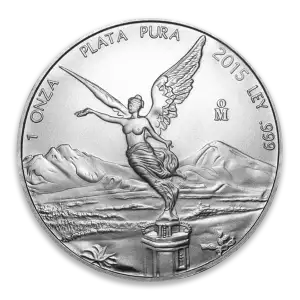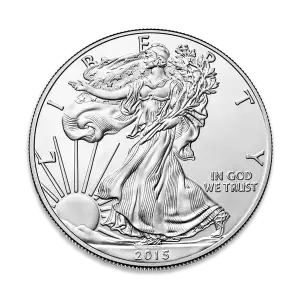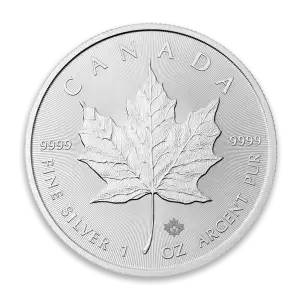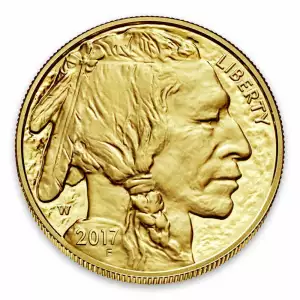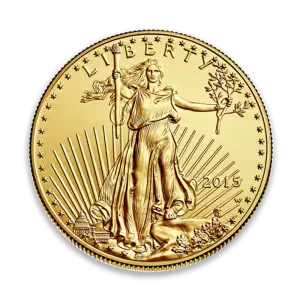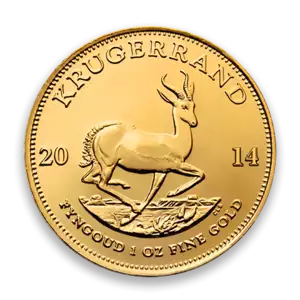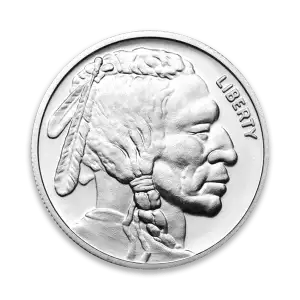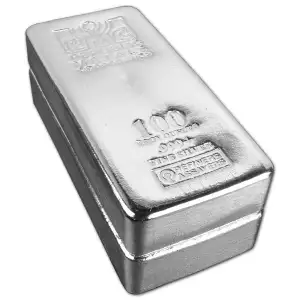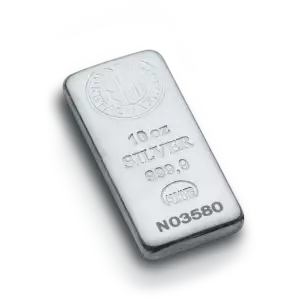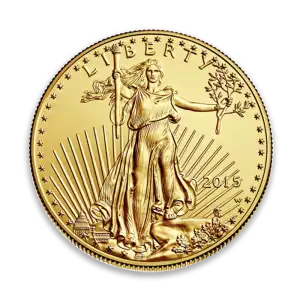A Comprehensive Resource for Phoenix & Peoria, AZ
In today’s uncertain economic landscape, many investors in Phoenix and Peoria, AZ are turning to precious metals - especially silver - as a stable and affordable alternative to stocks or real estate. Whether you’re new to precious metals or looking to diversify your portfolio, this silver investing guide will walk you through everything you need to know about how to invest in silver.
Owning physical silver offers simplicity and clarity as a direct investment form. However, it is important to consider storage and security, as well as the potential complications related to valuing silver jewelry or other silver items.
Why Invest in Silver?
Silver isn’t just shiny - it’s smart. Here’s why savvy investors across Arizona are buying silver:
Silver can serve as a diversification tool for investors heavily weighted in traditional stocks, providing a hedge when the stock market falters. The silver price is influenced by key factors such as supply and demand dynamics, market volatility, and historical price trends.
1. Inflation Hedge
Silver has historically held its value during times of inflation and economic uncertainty.
2. Affordable Entry Point
Compared to gold, silver is far more accessible for beginners or those on a modest budget.
3. Industrial Demand
Silver is used in electronics, solar panels, and medical devices - making it a precious commodity with consistent demand. The Silver Institute reports that the rising industrial demand for silver is driven by its crucial role in sectors such as renewable energy and electronics.
4. Tangible Asset
Unlike digital assets, silver is a physical metal that you can hold, store, and secure, offering benefits such as avoiding counterparty risk and coming in various forms like bullion bars and coins.
5. Growing Local Interest
Arizona’s thriving tech and solar industries create a regional awareness of silver’s value beyond just investing.
Understanding Silver’s Value
Silver’s value is determined by a combination of factors, including supply and demand, industrial usage, and investor sentiment. As a precious metal, silver has a long history of being used as a store of wealth and a form of exchange and currency. Its value is also influenced by its unique properties, such as its high thermal and electrical conductivity, which make it an essential component in various industries, including electronics, solar panels, and medical devices.
In addition to its industrial uses, silver is also used in the production of coins, bars, and jewelry, which can impact its value. The silver market is also influenced by the gold-silver ratio, which shows that the price of silver has never achieved more than a tenth of the value of gold. This ratio can fluctuate over time, affecting the value of silver.
Investors who are interested in understanding silver’s value should also consider the role of the Silver Institute, which provides data and insights on the global silver market. By staying informed about the latest trends and developments in the silver market, investors can make more informed decisions about their silver investments.
Investing in Silver vs. Gold
Investing in silver and gold are both popular options for those looking to diversify their portfolios and hedge against inflation. However, there are some key differences between the two precious metals that investors should consider.
Silver is often considered a more industrial metal than gold, with a wide range of uses in electronics, solar panels, and other applications. This means that the demand for silver can be more closely tied to industrial production and economic growth, which can make it more volatile than gold. The silver market can experience significant price swings based on changes in industrial demand, making it a dynamic but sometimes unpredictable investment.
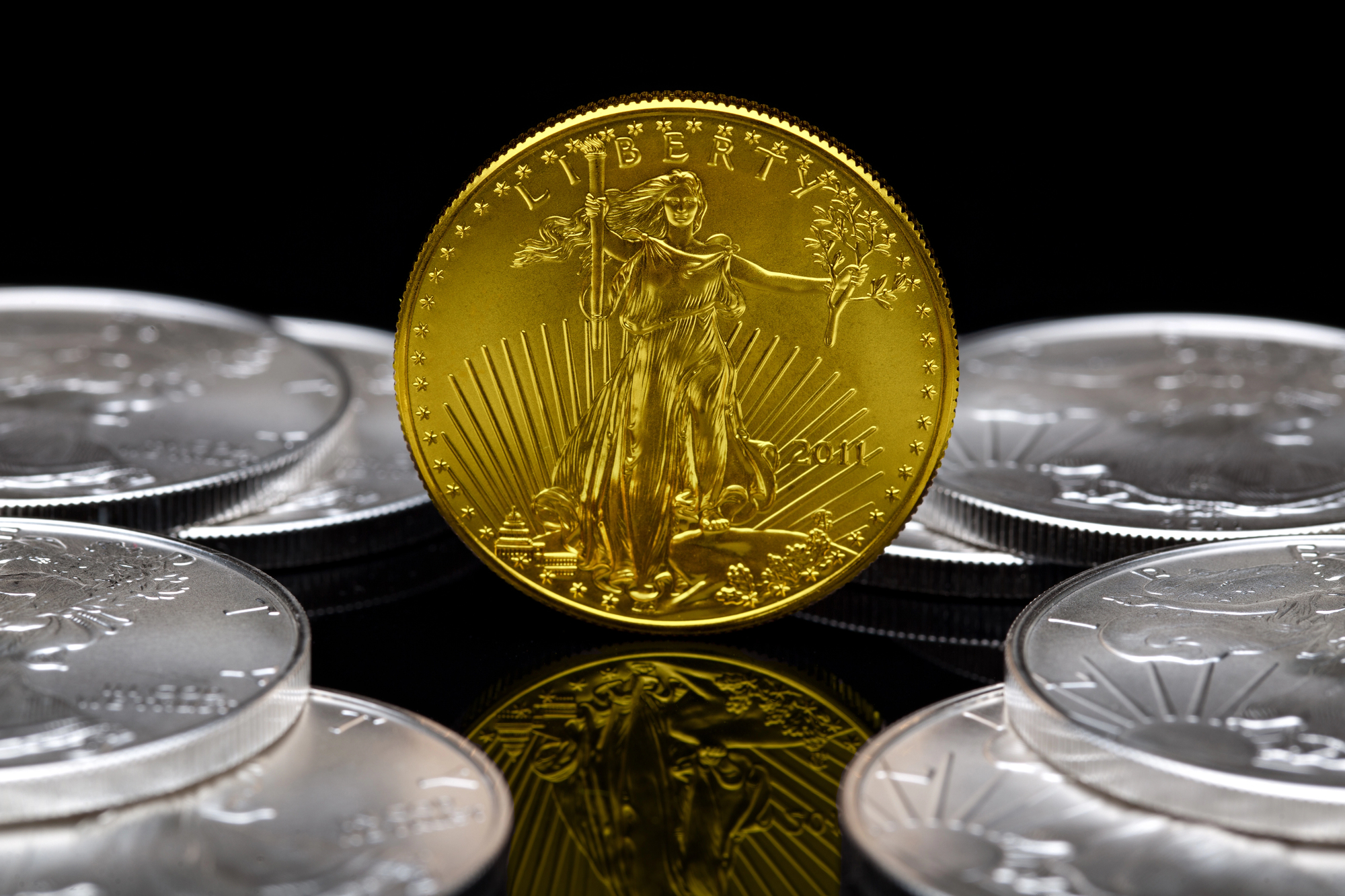
Gold, on the other hand, is often seen as a safe-haven asset and a store of value, with a long history of being used as a hedge against inflation and economic uncertainty. Gold is also less volatile than silver, with a more stable price over time. Investors often turn to gold during times of economic instability, viewing it as a reliable store of wealth.
In terms of price, silver is generally cheaper than gold, with a lower price per ounce. However, this also means that silver is more sensitive to price movements, with a higher potential for both gains and losses. For investors with a higher risk tolerance, silver can offer significant opportunities for profit, but it also requires careful market analysis and timing.
Ultimately, the decision to invest in silver or gold depends on an individual’s investment goals and risk tolerance. Both metals can be a valuable addition to a diversified portfolio, but it’s essential to understand the unique characteristics and risks associated with each. Whether you choose to invest in silver or gold, both precious metals can provide a hedge against inflation and economic uncertainty, helping to protect and grow your wealth over time.
Setting Investment Goals and Risk Tolerance
Before investing in silver, it’s crucial to set clear investment goals and assess your risk tolerance. This will help you determine the right investment strategy and ensure that you’re comfortable with the potential risks and rewards.
Investment goals can vary widely, but common objectives include:
- Diversifying a portfolio to reduce risk
- Hedging against inflation or economic uncertainty
- Generating income or capital gains
- Building wealth over the long-term
Risk tolerance is also an essential consideration. Silver can be a volatile investment, with prices fluctuating rapidly in response to changes in supply and demand. If you’re risk-averse, you may want to consider a more conservative investment approach, such as investing in silver ETFs or mutual funds. These options allow you to gain exposure to the silver market without the need to own physical silver, reducing the risks associated with storage and security.
On the other hand, if you’re willing to take on more risk, you may want to consider investing in physical silver or silver futures. Physical silver, such as bullion coins and bars, offers the advantage of owning a tangible asset, while silver futures can provide opportunities for significant gains through market speculation.
It’s also essential to consider your time horizon and liquidity needs. If you need to access your money quickly, you may want to consider a more liquid investment option, such as a silver ETF. On the other hand, if you have a longer time horizon, you may be able to ride out market fluctuations and potentially benefit from higher returns.
By setting clear investment goals and understanding your risk tolerance, you can develop a silver investment strategy that aligns with your financial objectives and comfort level. This will help you make informed decisions and maximize the potential benefits of investing in silver.
Types of Silver Investments
There are multiple ways to invest in silver. Each option has its pros and cons, depending on your goals:
1. Silver Bullion Coins
- Examples: American Silver Eagles, Canadian Maple Leafs. The Royal Canadian Mint is a reliable source for purchasing collectible coins and Maple Leaf bullion coins, and they also offer storage services to help investors maintain the quality and security of their silver investments.
- Pros: Highly recognizable, easy to resell
- Cons: Higher premiums
2. Silver Bars
- Sizes: 1 oz, 10 oz, 100 oz
- Pros: Lower premiums per ounce
- Cons: Less liquid than coins
3. Junk Silver
- Definition: U.S. coins minted before 1965 (90% silver)
- Pros: Legal tender, good for small trades
- Cons: Requires knowledge to identify value
4. Silver Rounds
- Made by: Private mints
- Pros: Low premiums
- Cons: Not legal tender
5. Silver ETFs or Mining Stocks
- Pros: Easy to buy/sell through brokerage accounts
- Cons: You don’t physically own the metal
Investing in silver miners, such as Company A and Company B, can offer higher returns when silver prices rise. However, it's important to consider the risks associated with mining stocks, including management decisions and operational challenges. Junior miners, in particular, carry additional risks due to their position in the production timeline.
How to Start Investing in Silver in Phoenix & Peoria, AZ
Starting your silver investment journey is easier than you think—especially with local guidance.
Step-by-Step Guide:
- Define Your Budget & Goals
Decide if you're buying for long-term security, trading, or as a retirement hedge. - Choose the Right Form
Coins for liquidity, bars for bulk value, junk silver for versatility. - Find a Trusted Local Dealer
Work with reliable dealers like Copper State Coin in Peoria, AZ. - Understand Spot Price vs. Premiums
The spot price is the market price of silver. The premium is what you pay above that. - Secure Your Investment
Store in a home safe, a safety deposit box, or ask your dealer about secure storage options.
Where to Buy Silver in Arizona
Local expertise matters—especially when you’re investing in something tangible.
Your Best Options:
- Local Coin Shops: Visit Copper State Coin for in-person consultations and real-time inventory.
- Coin Shows: Phoenix and Peoria often host local events where collectors and investors gather.
- Online Platforms: Be cautious—ensure you're dealing with verified sources.
Why Buy Local?
- Face-to-face support
- No shipping risks
- Local insight into pricing and trends
- Instant authentication
Local Resources for Silver Investors
For investors in Phoenix and Peoria, AZ, looking to buy silver, there are several local resources available. Many cities have coin shops or precious metal dealers that sell silver coins, bars, and other forms of physical silver. These dealers often have a wide selection of products and can provide guidance on the best ways to invest in silver.
In addition to local dealers, investors can also consider online resources, such as online marketplaces or financial advisors who specialize in precious metals. These resources can provide access to a wider range of products and can offer more competitive pricing.
Investors who are interested in buying silver should also consider the reputation of the dealer or online marketplace. Look for dealers who are members of professional organizations, such as the Industry Council for Tangible Assets (ICTA), and who have a strong reputation for customer service and fair pricing.
What to Watch Out For When Buying Silver
Like any investment, silver comes with risks. Stay informed to protect your assets:
Common Pitfalls:
- Counterfeit Products: Stick with reputable dealers.
- Overpaying: Learn about market premiums before you buy.
- Market Volatility: Silver prices can fluctuate; focus on long-term value.
- Storage Risks: Keep your silver secure and insured.
Cost and Fees Associated with Silver Investing
Investing in silver can involve various costs and fees, depending on the type of investment and the dealer or online marketplace used. For example, buying physical silver coins or bars can involve a premium over the spot price of silver, which can range from 5% to 20% or more, depending on the product and the dealer.
In addition to the premium, investors may also need to pay storage fees if they choose to store their physical silver in a secure facility. These fees can range from 0.5% to 2% per year, depending on the facility and the amount of silver stored.
Investors who choose to invest in silver ETFs or mutual funds may also need to pay management fees, which can range from 0.5% to 2% per year, depending on the fund and the manager. These fees can eat into the returns on the investment, so investors should carefully consider the costs and fees associated with their silver investments.
Storing and Securing Your Silver Investment
If you decide to invest in physical silver, it’s essential to consider how you will store and secure your investment. Here are some options to consider:
- Home Storage: You can store your silver at home in a safe or a secure location. However, this can be a security risk, and you may need to consider additional insurance to protect your investment. A high-quality safe can provide a level of security, but it’s important to ensure that it is properly installed and concealed.
- Bank Storage: Many banks offer safe deposit boxes or other storage options for precious metals. This can be a secure option, but you may need to pay fees for storage and access. Bank storage provides the advantage of professional security measures, but it may not be as convenient for frequent access.
- Third-Party Storage: There are many third-party storage options available, including companies that specialize in storing precious metals. These companies often offer secure facilities and insurance to protect your investment. Third-party storage can provide peace of mind, knowing that your silver is stored in a professional, secure environment.
- Digital Storage: If you invest in digital silver, your investment will be stored electronically, and you won’t need to worry about physical storage. Digital storage options, such as silver ETFs, allow you to invest in silver without the need for physical possession, reducing the risks associated with theft or loss.
Regardless of which storage option you choose, it’s essential to ensure that your silver is properly insured and secured. You should also consider the costs associated with storage and access, as these can eat into your returns over time.
In addition to storage, you should also consider the security of your investment. This includes ensuring that your silver is authentic and that you have proper documentation to prove ownership. You should also be aware of any potential risks, such as theft or loss, and take steps to mitigate these risks.
By carefully considering your storage and security options, you can help protect your silver investment and ensure that it remains a valuable addition to your portfolio. Investing in physical precious metals requires careful planning and consideration, but with the right approach, you can enjoy the benefits of owning a tangible asset that can provide long-term value and security.
Long-Term Silver Investment Strategies
To build lasting wealth through silver, consider these proven approaches:
Proven Strategies:
- Buy and Hold: Ideal for hedging against inflation or economic instability.
- Dollar-Cost Averaging: Invest a fixed amount regularly to balance market highs and lows.
- Diversify: Combine silver with gold, stocks, or real estate for a balanced portfolio. Silver can also act as a hedge when the stock market falters, providing stability during economic downturns.
- Silver IRAs: Ask your financial advisor about including silver in your retirement plan.
Investing in Silver for Retirement
Investing in silver can be a good way to diversify a retirement portfolio and potentially increase returns. Silver has a low correlation with other assets, such as stocks and bonds, which means that it can provide a hedge against inflation and market volatility.
Investors who are interested in investing in silver for retirement should consider their overall investment goals and risk tolerance. They should also consider the fees and costs associated with their silver investments and choose products that align with their goals and risk tolerance.
One way to invest in silver for retirement is to use a self-directed IRA, which allows investors to hold physical silver coins or bars in their retirement account. This can provide a tax-efficient way to invest in silver and potentially increase returns over the long term.
Investors who are interested in investing in silver for retirement should also consider consulting with a financial advisor who specializes in precious metals. These advisors can provide guidance on the best ways to invest in silver and help investors create a diversified retirement portfolio that meets their goals and risk tolerance.
Final Thoughts
Whether you’re in Peoria, Phoenix, or anywhere in Maricopa County, silver is a smart way to hedge your portfolio, protect your savings, and invest in something real. With proper research and a reliable local dealer, silver investing can be a simple and secure journey.
Ready to Start Investing?
At Copper State Coin & Bullion, we’re proud to help Arizonans build wealth through precious metals. Visit our Phoenix store today to:
- Browse high - quality silver bullion
- Get expert investment advice
- Authenticate or sell your existing collection
- Secure your future with local, trustworthy service
Visit Us in Peoria, Phoenix, AZ
Call Now to Schedule Your Consultation!
Frequently Asked Questions (FAQs)
Q: Is it legal to store silver at home in Arizona?
A: Yes, and it’s common. Use a high-quality safe and consider insurance.
Q: How do I know I’m buying real silver?
A: Buy from verified dealers like Copper State Coin. Ask about authentication services.
Q: Can I sell my silver locally?
A: Yes! Many local dealers, including Copper State Coin, buy silver directly from the public.

